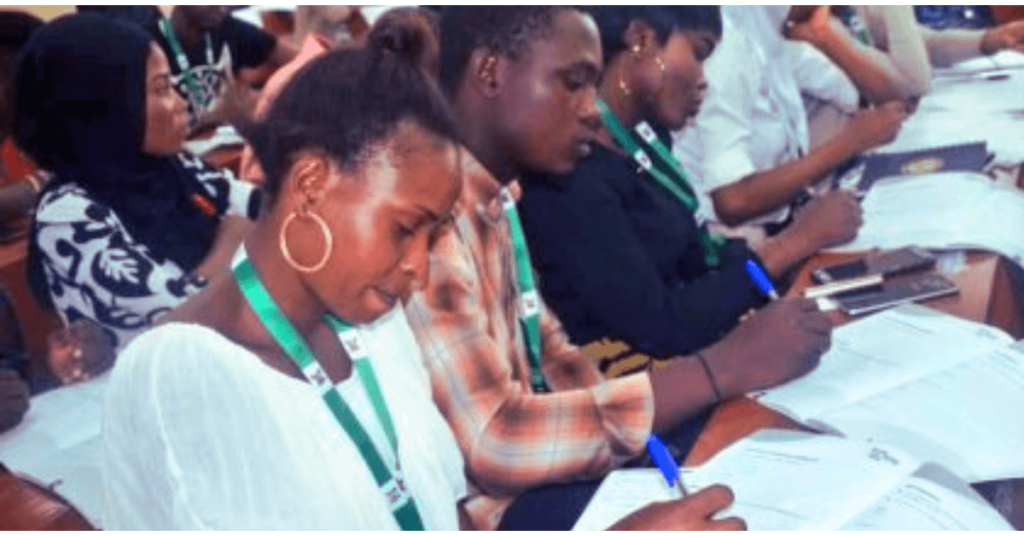Student Loan for International Students in Nigeria Studying abroad is an enriching experience that opens doors to new cultures and advanced academic opportunities.Funding often plays a pivotal role for Nigerian students seeking to study internationally or international students considering studying in Nigeriae. A common question arises: What are the options for student loans for international students in Nigeria? This comprehensive guide explores loan options, eligibility criteria, and alternative financial support available to international students navigating the Nigerian education system or pursuing studies abroad.

Understanding Student Loans for International Students in Nigeria
A student loan provides financial assistance to cover tuition, living expenses, and other educational costs. In Nigeria, student loans for international students are not as widely available as in some other countries. However, there are avenues for securing financial support, including private loans, international financial aid programs, and partnerships between Nigerian banks and global educational institutions.
Loan Options for International Students in Nigeria
- Private Financial Institutions:
Some Nigerian banks and private lenders offer education loans to students pursuing degrees locally or abroad. While these loans are often targeted at Nigerian citizens, international students with a Nigerian guarantor may qualify. Key players include:- Access Bank: Offers the Advance for School Fees loan, which might cater to international students if certain conditions are met.
- First Bank of Nigeria: Provides educational financing for tuition and related costs, with flexible repayment terms.
- International Loan Providers:
For those studying in Nigeria, global lenders like Prodigy Finance or MPOWER Financing may extend loans to international students, focusing on future earning potential rather than local credit history. - University-Sponsored Loans:
Some Nigerian universities collaborate with financial institutions to offer student loans or installment payment plans. These programs are worth exploring directly through the institution’s financial aid office.
Eligibility Criteria
To access student loans for international students in Nigeria, specific requirements must be met. These typically include:
- Proof of Admission: A valid admission letter from a recognized Nigerian or international university.
- Guarantor Requirements: Many loan providers require a Nigerian citizen as a guarantor or co-signer.
- Visa and Residency Documents: For international students in Nigeria, a valid study visa and residency permits are essential.
- Financial Documentation: Demonstrating the ability to repay the loan is often mandatory, especially for private lenders.
Scholarships as an Alternative to Loans
If you’re asking, What about alternatives to student loans for international students in Nigeria? scholarships are a viable option. Nigeria offers several scholarship opportunities for both inbound and outbound students:
- Federal Government Scholarships:
These are primarily for Nigerian citizens, but international students pursuing studies in Nigeria may find specific scholarships through partnerships or bilateral agreements. - Nigerian University Scholarships:
Many universities in Nigeria, such as the University of Lagos (UNILAG) and Obafemi Awolowo University (OAU), offer merit-based scholarships for exceptional students, including international students. - Global Scholarship Programs:
For Nigerian students studying abroad, scholarships like the Chevening Scholarship, Commonwealth Scholarship, and Fulbright Program are worth exploring.
Challenges Faced by International Students Seeking Loans
Securing a student loan for international students in Nigeria comes with its challenges:
- Limited Loan Options: The market for international student loans in Nigeria is still developing, making it harder to find tailored products.
- High Interest Rates: Private loans often come with steep interest rates, which may not be feasible for many students.
- Guarantor Issues: International students without local connections may struggle to meet guarantor requirements.
These challenges highlight the importance of exploring multiple funding sources, including savings, part-time work, and grants.
Alternatives to Student Loans
For students unable to secure a loan, here are some alternatives to consider:
- Crowdfunding:
Platforms like GoFundMe and Patreon allow students to raise money for their education by appealing to family, friends, and even strangers. - Part-Time Work:
International students in Nigeria can explore part-time job opportunities, though restrictions may apply based on visa regulations. - Family Support and Savings:
Personal savings or financial support from family members often complement other funding sources. - Corporate Sponsorships:
Companies operating in Nigeria sometimes offer sponsorships or scholarships for students pursuing education aligned with their business interests.
Tips for Securing a Loan
If you’re still asking, How do I secure a student loan for international students in Nigeria?, here are actionable tips:
- Research Thoroughly: Compare interest rates, repayment terms, and eligibility requirements across various lenders.
- Prepare Documentation: Have all necessary documents, such as admission letters, visa permits, and financial records, ready.
- Consult Financial Advisors: Many universities and financial institutions offer free consultations to help students navigate loan applications.
- Negotiate Terms: Don’t hesitate to negotiate repayment schedules or interest rates with private lenders.
Government Initiatives for Education Financing
While the Nigerian government’s focus is primarily on citizens, initiatives like the Tertiary Education Trust Fund (TETFund) and international exchange programs could indirectly benefit international students. Exploring these initiatives might uncover hidden opportunities for financial support.
Final Thoughts
When considering the question, Are student loans for international students in Nigeria accessible?, the answer is multifaceted. While direct options may be limited, a combination of private loans, scholarships, and alternative funding sources can provide a pathway to achieving educational goals. Thorough research, preparation, and a proactive approach are essential to navigating this financial landscape successfully.
Whether you’re a Nigerian student seeking to study abroad or an international student in Nigeria, the right mix of funding options can make your academic dreams a reality. Explore all avenues, seek advice when needed, and plan strategically to make the most of your educational journey.

